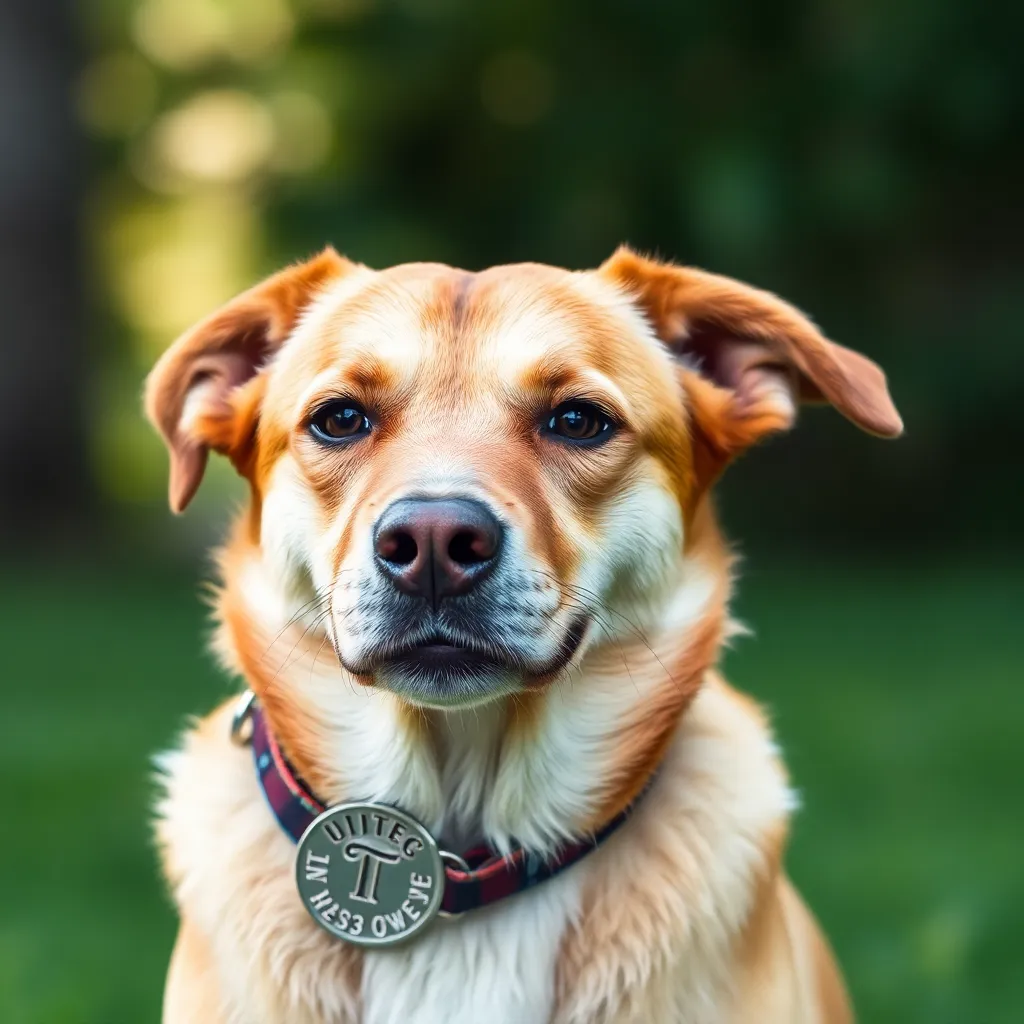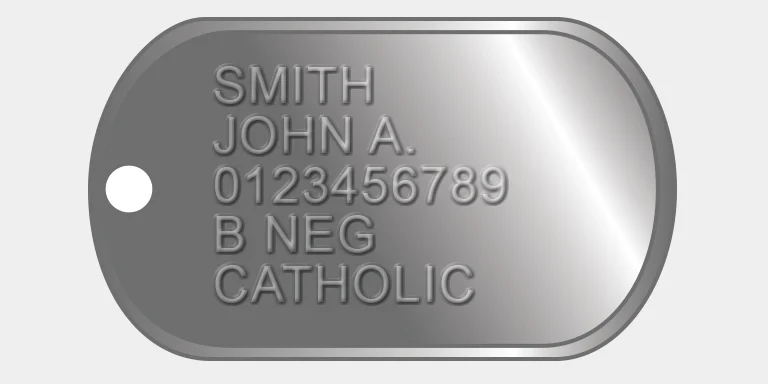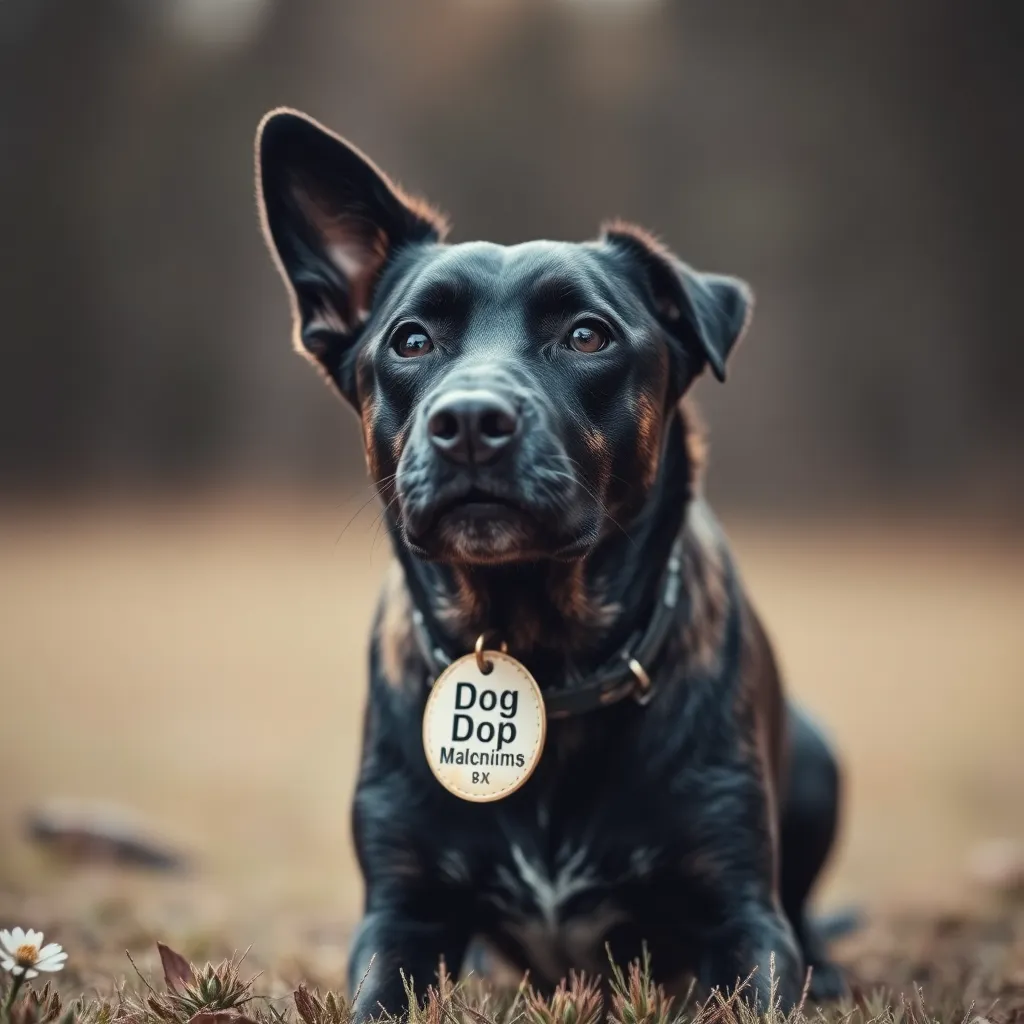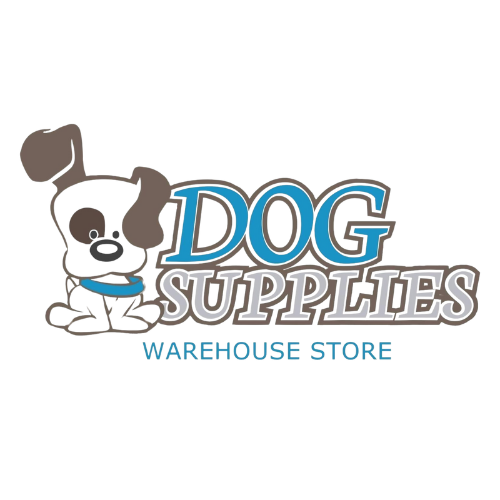Every dog owner understands the importance of keeping their pet safe and easily identifiable, especially if the unthinkable happens and they become separated. Personalized dog collars and ID tags are more than just accessories—they’re essential tools for pet safety. Not only do they offer peace of mind, but they also provide a unique way to express your dog’s personality and ensure quick identification. Let’s explore why these items matter and the many customization options available to make them practical and stylish.
Why Personalized ID Tags Are Essential for Dog Safety
Identification in Case of Emergencies
Losing a pet is every dog owner’s nightmare, and ID tags can be a lifesaver in such situations. According to the American Humane Association, about 10 million pets are lost each year, and ID tags play a critical role in reuniting them with their owners. A personalized collar or ID tag with your contact information ensures that anyone who finds your pet can quickly reach you. Even if your dog has a microchip, ID tags are an immediate form of identification that doesn’t require scanning.

Legal and Practical Benefits
In many places, having an ID tag for your pet is legally required. Local ordinances often mandate that dogs wear visible identification, such as a collar with a tag, to help control lost and stray animals. Ensuring your dog’s collar complies with these regulations not only keeps them safe but also protects you from potential fines or citations. Additionally, tags often include vaccination details, providing immediate assurance that your pet is safe for others to interact with in case of an accidental separation.
Pet Safety and Owner Peace of Mind
Dog collars and ID tags aren’t just for emergencies—they offer day-to-day peace of mind. As a pet owner, you know your dog has an immediate identifier with your contact details if something goes wrong, allowing you to relax on walks, outings, or even when hosting guests who may leave a door open. For people living in busy urban areas or near wooded, high-traffic regions, tags are an essential preventative measure against accidental escapes.
Essential Information for ID Tags
Key Information to Include
When creating a personalized ID tag, you’ll want to include specific details to make sure anyone can contact you easily. Start with the basics: your pet’s name and your phone number. While the pet’s name is a friendly touch, your contact information is critical. If space permits, consider adding a secondary contact number in case you’re unreachable on the primary one.

For pets with medical needs, including brief information on the tag—such as “Diabetic” or “Requires Medication”—can be helpful. Additionally, if your pet has a microchip, indicating “Microchipped” on the tag can inform people that there’s more information accessible if they bring your pet to a vet or shelter.
Keeping Information Updated
Updating your pet’s ID tags as necessary is often overlooked but crucial. If you move or change your phone number, ensure you order a new tag promptly. An outdated tag can lead to unnecessary delays in reuniting with your dog, should they go missing. With the convenience of online ordering, replacement tags can arrive within days, allowing you to keep your dog’s identification current with minimal effort.
Types of Customization Options for Collars and Tags
Material Choices and Durability
The material of your dog’s collar and tag matters for both comfort and durability. Popular choices include stainless steel, brass, and aluminum, each with unique benefits. Stainless steel tags are rust-resistant, durable, and often come in various finishes. Brass offers a classic look and is less prone to scratches, but it can darken over time. Aluminum is lightweight, making it suitable for smaller dogs, although it can scratch more easily.

For active or adventurous dogs, silicone or plastic tags may be an option as they’re quieter, reducing the jingling sound of metal tags, but may wear out faster. When it comes to collars, choose materials that will be gentle on your dog’s neck and resistant to wear, such as nylon, leather, or waterproof biothane.
Design and Style Options
Personalization options for collars and tags can help reflect your dog’s personality and even your own style preferences. From a range of colors to engraved fonts and special designs, many tags can be customized to match your dog’s personality. For example, bold colors can be a fun choice for energetic dogs, while neutral tones offer a classic look.
Reflective or glow-in-the-dark collars are excellent for enhancing your dog’s visibility during night walks, while decorative tags with paw prints or custom engravings allow a bit of flair without sacrificing functionality. Some pet owners even opt for tags with unique shapes—such as bones, hearts, or circles—that add a touch of charm while remaining easily readable.
Functional Add-Ons for Enhanced Safety
In addition to basic ID tags, there are advanced options like QR-coded or GPS-enabled tags. QR tags allow anyone with a smartphone to scan the tag and access detailed information about your pet, including additional contacts, medical history, and even vet details. GPS-enabled collars, although more expensive, offer live tracking and are particularly useful for pets prone to wandering.
For tech-savvy pet owners, smart collars with tracking and health monitoring features are another option, providing both safety and valuable health data. Finally, some collars are designed with built-in ID tags that are less likely to get lost, offering a sleek alternative to traditional tags.
Choosing the Right Custom ID Tags for Your Dog
Matching Tags to Lifestyle and Environment
Choosing the right ID tag involves considering your dog’s lifestyle. For active dogs that frequently swim, hike, or play in rough terrain, waterproof and scratch-resistant tags made of durable materials like stainless steel or silicone are ideal. In contrast, smaller or less active dogs might be comfortable with lightweight aluminum or plastic tags. If you live in a rainy climate, tags and collars with waterproof properties are crucial to prevent rust or wear.
For pets with night activities, a reflective collar or a glow-in-the-dark tag can make a noticeable difference. Personalized tags with unique patterns or colors can help ensure they stand out without sacrificing any practical features.
Tips for Ensuring Comfort and Fit
When selecting a collar and tag for your dog, comfort should be a priority. A collar that’s too tight can cause irritation, while one that’s too loose might slip off. To find the right fit, follow the two-finger rule: ensure you can fit two fingers between the collar and your dog’s neck.

Consider the weight of the tag, especially for small breeds. Lightweight tags will prevent strain on their neck, and tags with rounded edges reduce the chance of irritation. Additionally, look for adjustable collars so you can ensure the right fit as your dog grows or if they gain or lose weight.
In summary, personalized collars and ID tags are an essential investment in your dog’s safety and an opportunity to showcase their unique personality. From choosing durable materials to incorporating details like medical needs and reflective surfaces, there are countless ways to customize these items to suit your dog’s needs. By ensuring your pet has a secure, comfortable, and personalized ID tag, you’re giving yourself peace of mind and ensuring that if your furry friend ever wanders off, they’re equipped to make it back home safely.
So, the next time you’re considering accessories for your dog, remember that an ID tag is much more than a decorative touch—it’s their lifeline, and choosing the right one is a simple yet powerful way to protect them and keep them close to you.

After 5 years in a high pace business management role, I partnered with an e-commerce developer to start building Dog Supplies Warehouse.
Our number one goal is to make sure all products are managed and delivered to our customers door fast and accurately.
